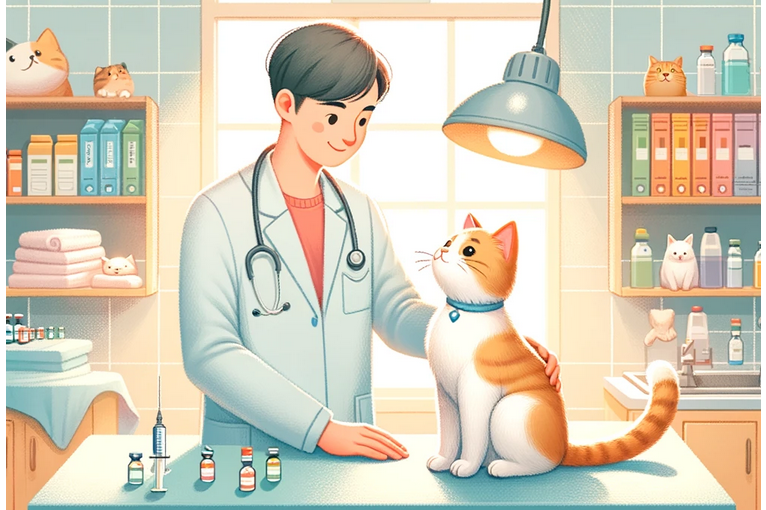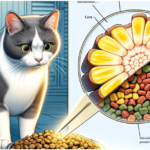When it comes to the health and wellbeing of our feline friends, vaccinations play a crucial role in preventing disease and ensuring they lead long, happy lives. So, what vaccines do cats need? It’s important to understand which vaccines are recommended, why they’re important, and how they can protect your beloved pet from serious health issues. In this guide, we’ll dive into the world of cat vaccinations, shedding light on the essentials every cat parent should know.
Understanding Cat Vaccinations
Vaccinations are designed to prepare your cat’s immune system to fight off potential infections by exposing it to a small, safe part of a virus or bacteria. This exposure helps the immune system recognize and combat these invaders more efficiently if they encounter them in the future.
Core Vaccines Cats Need
Core vaccines are recommended for all cats, regardless of their lifestyle or environment. These vaccines protect against diseases that are widespread, have a high mortality rate, or pose a significant risk to humans.
- Feline Panleukopenia (FPV) Vaccine
Also known as feline distemper, FPV is a highly contagious and often fatal viral disease affecting cats. The vaccine is typically administered in the first few months of a kitten’s life with booster shots following according to veterinary guidelines. - Feline Herpesvirus (FHV-1) and Feline Calicivirus (FCV) Vaccines
These vaccines protect against two major causes of upper respiratory infections in cats. Both conditions are highly contagious and can cause severe respiratory distress. Vaccination is the best defense against these viruses, with initial doses given to kittens and booster shots as recommended. - Rabies Vaccine
Rabies is a fatal virus that can affect all warm-blooded animals, including humans. The rabies vaccine is legally required in many places due to the risk to human health. The initial vaccine is given around 12 weeks of age, with boosters following according to local laws and veterinary advice.
Non-Core Vaccines
Non-core vaccines are administered based on a cat’s lifestyle, environment, and risk of exposure to certain diseases.
- Feline Leukemia Virus (FeLV) Vaccine
FeLV is a viral disease that can suppress a cat’s immune system, leading to a variety of health issues, including cancer. The FeLV vaccine is recommended for cats that go outdoors or live in multi-cat households where the infection status of all cats is not known. - Feline Immunodeficiency Virus (FIV) and Feline Infectious Peritonitis (FIP) Vaccines
These vaccines are less commonly administered and are typically recommended only for cats at high risk of exposure. FIV is akin to HIV in humans, and FIP is a fatal viral disease. The decision to vaccinate against FIV and FIP should be based on a detailed discussion with your veterinarian.
The Importance of Vaccination
Vaccinations are a vital part of preventive healthcare for cats. They not only protect your cat from severe diseases but also contribute to the overall health of the feline population by reducing the spread of infectious diseases. Regular vaccinations, as recommended by your vet, can save your cat from suffering and save you from the distress and expense of treating preventable diseases.
Scheduling and Booster Shots
Kittens typically start their vaccination series between 6 to 8 weeks of age, with booster shots administered at 3- to 4-week intervals until they are about 16 weeks old. Adult cats require booster vaccinations based on veterinary recommendations, which can vary depending on the vaccine type, the cat’s health, lifestyle, and risk factors.
Final Thoughts
Vaccinating your cat is a straightforward way to provide them with a long, healthy life. While the thought of scheduling multiple veterinary appointments might seem daunting, the protection vaccines offer against serious diseases is invaluable. Always consult with your veterinarian to determine the most appropriate vaccination schedule for your cat, and ensure they receive the necessary booster shots for continuous protection.
Remember, by vaccinating your cat, you’re not just protecting them; you’re also contributing to the health and wellbeing of the entire feline community. So, make sure to keep up with your cat’s vaccinations and give them the healthy, happy life they deserve.
For more information on cat health and vaccinations, reputable sources such as the American Association of Feline Practitioners (AAFP) offer detailed guidelines and recommendations that can help you navigate the specifics of your cat’s healthcare needs.






